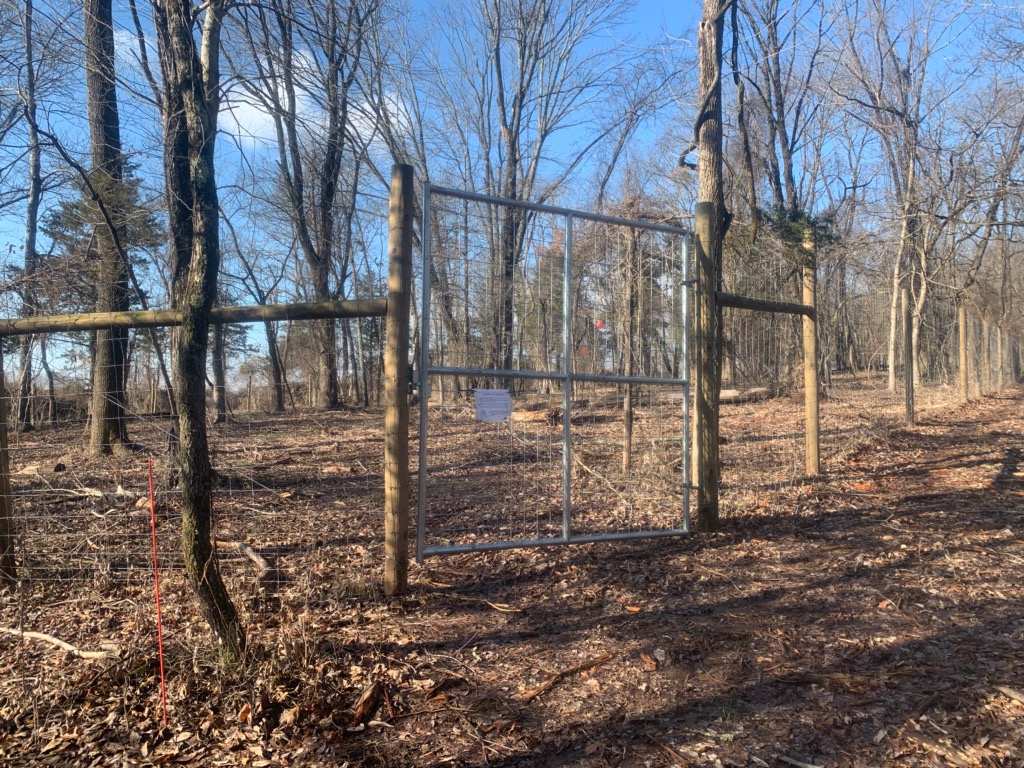FOREST RESTORATION PROJECT
This 18-acre Forest Restoration site, located at the Billy Johnson Mountain Lakes Nature Preserve in Princeton, will provide sustaining habitat for birds, pollinators, small mammals, and other wildlife, while providing a much-enhanced experience for hikers, runners, cyclists, birdwatchers and other park users.
The purpose of this project is to restore a degraded forest to a healthy one comprised of native trees, shrubs, wildflowers, grasses, and ferns. Until recent invasive removal events, this 18-acre forest site was heavily infested with invasive species including multiflora rose (Rosa multiflora), Japanese honeysuckle vine (Lonicera japonica), Oriental photinia (Photinia villosa), and Japanese stilt grass (Microstegium vimineum). Invasive species come from foreign regions, often through the transport of goods or the horticultural trade, and upon arrival can quickly degrade native ecosystems, threatening vulnerable species and reducing overall biodiversity. For example, we expect to lose most of our Ash trees to the emerald ash borer, an invasive pest from Asia that has already claimed millions of Ash trees from forest canopies across North America.
Before: Invasive species such as Multiflora rose (Rosa multiflora), Japanese honeysuckle vine (Lonicera japonica), and Oriental photinia (Photinia villosa) overwhelm this forest understory and outcompete native plant populations.
After: A fence enclosing 8.5 acres of woodland was constructed to protect tree seedlings and other vulnerable natives from the high deer pressure experienced in Mercer County. The trees we protect now will become the future canopy of our forests.
A large deer exclosure fence was constructed within the project site to protect 8.5 acres of forest habitat. The pressures posed by the overabundance of white-tailed deer is a driving force behind forest degradation in our area. Large herd sizes combined with limited foraging habitat has led to severe over-browse of native tree saplings, ultimately hindering forest regeneration. The deer exclosure fenced area will serve as a conservation zone and native plant nursery that offers refuge to threatened plant species, produces seed for native plant propagation, restores the soil seed bank, and secures the future tree canopy by protecting native tree seedlings.
The Friends of Princeton Open Space is committed to planting thousands of native trees, shrubs, wildflowers, grasses, and ferns to restore the 18-acre upland forest site. The restored site will provide sustaining habitat for birds, pollinators, mammals, and other wildlife, while providing a much-enhanced experience for hikers, runners, bicyclists, birdwatchers and other park users. Planting will begin this Spring of 2020 and will engage a variety of community members, volunteers, and students. Contact info@fopos.org if you would like to get involved!
This project is generously supported by the NJDEP/Green Acres Stewardship Program, the George H. and Estelle M. Sands Foundation, the New Jersey Committee of the Garden Club of America and the Garden Club of Princeton, the Holden Grant Program of the Washington Crossing Audubon Society, Janssen Pharmaceuticals, Inc., the Franklin Parker Grant Program administered by New Jersey Conservation Foundation, and Investors Foundation. In-kind support has been provided by the Municipality of Princeton. FOPOS thanks all of its donors and the many volunteers who have helped with this important conservation project.
Teamwork Makes the Dream Work!
The Friends of Princeton Open Space is a non-profit organization that relies on volunteer support to meet our conservation goals. In 2019-2021 volunteers helped to remove invasive plants from areas within the 18-acre forest restoration site, and helped to plant nearly 8,000 native trees, shrubs, and herbaceous plants. Contact us if you would like to join our team of volunteers.
Summer 2019: Navy and Military members came all the way from Fort Dix to help us battle invasive species within the Forest Restoration site. Incredible work!




